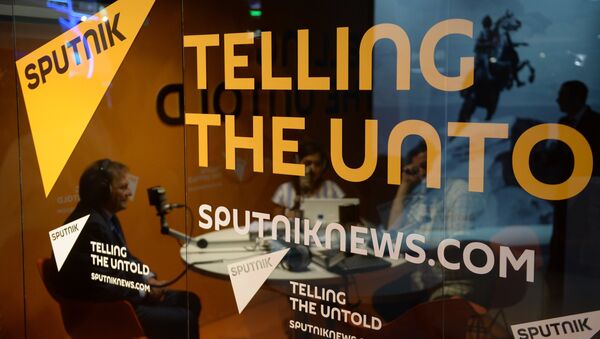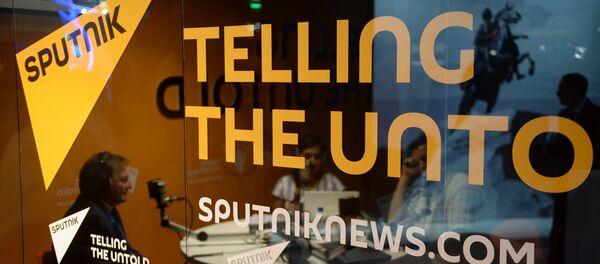Sputnik placed its content within the.com zone after Latvian domain name registrars, acting on its Foreign Ministry orders, suspended its dissemination domestically in purported violation of EU regulation. The ministry claimed later the ban was linked to an EU blacklist of Russian officials that include Kiselev.
"I am grateful to our Latvian colleagues for an excellent advertising campaign of our website. Our traffic has soared," Kiselev said at a Moscow-Minsk video link on opening day of a multimedia press center in the Belarusian capital.
He reiterated his view that the ban constituted a "fear of freedom of expression, fear of the other point of view." The Russian Foreign Ministry earlier called Latvia’s move "blatant censorship."
"They tried to close down our website under the pretext that sanctions are imposed personally against me. It is beyond the legal field because personal sanctions do not imply anything else in relation to the agency," Kiselev stressed.
The European Union imposed individual sanctions against Kiselev on March 21, 2014, when it added him to the list of persons who, according to its opinion, are threatening Ukraine’s territorial integrity.
Sputnik is a news agency and radio network with multimedia news hubs in dozens of countries. Sputnik broadcasts through its websites in over 30 languages, as well as analog and digital radio, mobile apps and social media. Sputnik newswires, available by subscription, run around the clock in English, Arabic, Spanish and Chinese.



